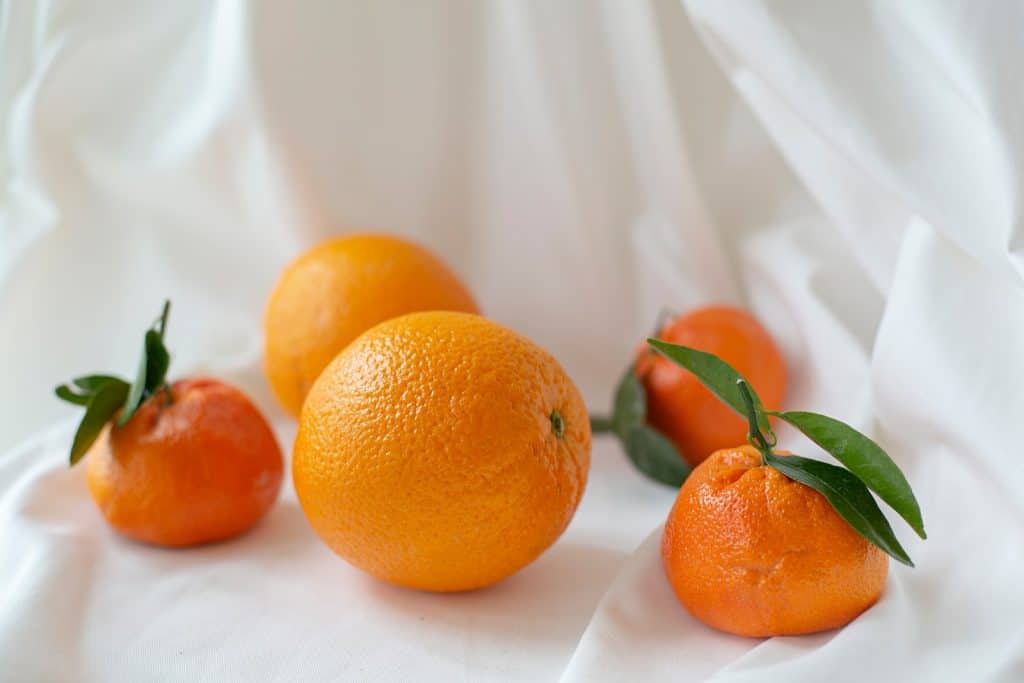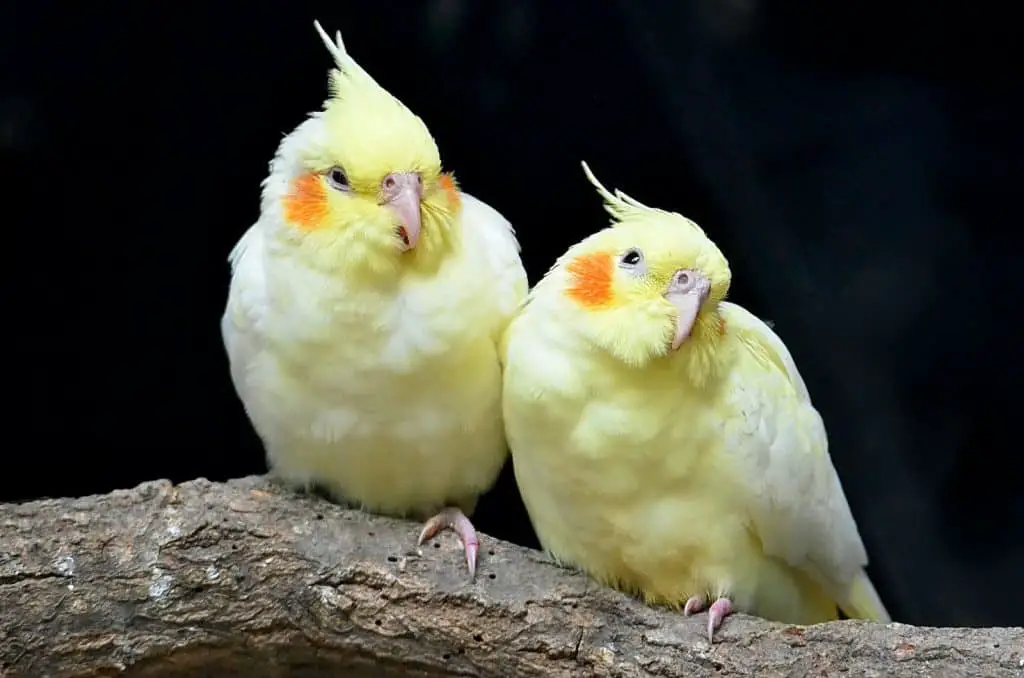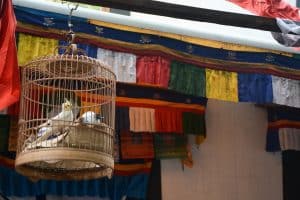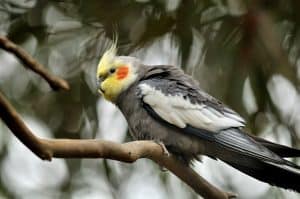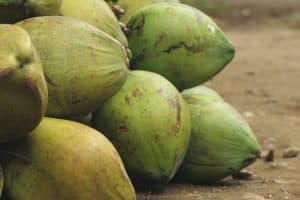For those of us who have cockatiels, we want to make sure that we are giving them the best possible care. Part of that is ensuring they have a healthy and balanced diet. So, can cockatiels eat oranges?
Can cockatiels eat oranges?
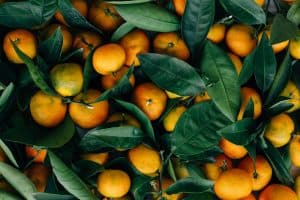
Cockatiels are naturally drawn to the sweet smell and taste of oranges. However, just because they like the fruit doesn’t necessarily mean that it is good for them. So, can cockatiels eat oranges? The answer is yes, but only in moderation. Eating too much orange can lead to cockatiels experiencing digestive problems such as diarrhea or vomiting.
How to feed oranges to birds?
When feeding oranges to birds, it is best to give them only a small amount at a time. You can offer orange slices or wedges as an occasional treat, but make sure to remove the seeds and pits first. If your cockatiels eat orange seeds, they may experience digestive issues such as diarrhea or vomiting. Orange seeds can also be a choking hazard.
You can also give your cockatiel canned mandarin oranges, but make sure to read the label first. Some brands of canned mandarin oranges contain sulfites, which can be harmful to birds. If you’re not sure whether the canned mandarin oranges you have contain sulfites, it is best to err on the side of caution and avoid feeding them to your cockatiel altogether.
Can cockatiels eat orange peels, is it safe?
Orange peels are safe for cockatiels to eat in small amounts. The peel contains a compound called d-limonene, which can help to keep your bird’s feathers healthy and shiny. In addition, the peel is a good source of fiber, which helps keep your bird’s digestive system functioning properly.
However, you should avoid feeding your cockatiel large pieces of orange peel, as they may cause digestive upset. If you do feed your bird orange peel, be sure to wash it thoroughly to remove any pesticide residue. Overall, orange peels can be a healthy part of your cockatiel’s diet, but it is important to feed them in moderation.
What are the benefits of feeding oranges to cockatiels?
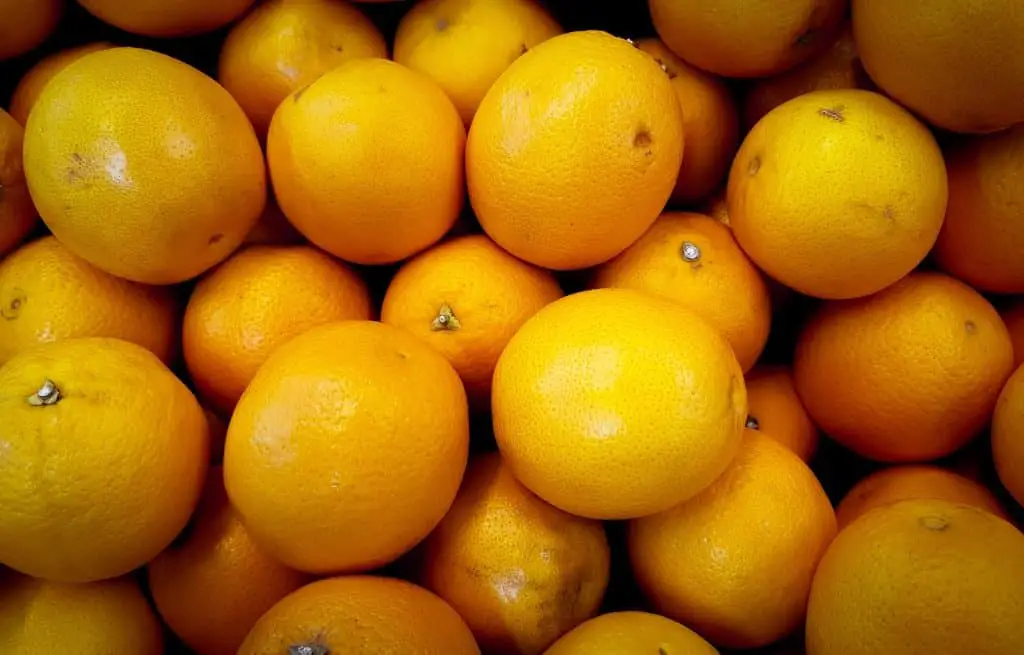
Oranges are a good source of vitamin C, which is important for birds as it helps to boost their immune system. The fruit is also a good source of fiber, which can help with digestion.
In addition, oranges can also help keep your cockatiel’s plumage looking healthy and shiny. The citrus oils in oranges can help moisturize your cockatiel’s feathers and prevent them from getting dry and brittle.
Are there any risks associated with feeding oranges to cockatiels?
As mentioned earlier, too much orange can lead to digestive problems in cockatiels. It is also important to note that oranges are high in sugar, so they should only be given as an occasional treat and not part of your bird’s regular diet.
How many oranges should a cockatiel have per day?
As a general rule of thumb, you should only give your cockatiel one or two small pieces of orange per day. If you are unsure how much orange is too much, it is best to err on the side of caution and give your bird less rather than more.
Can I give my cockatiel an orange if it is sick?
If your cockatiel is sick, you should consult with a veterinarian before giving them any oranges. In some cases, citrus fruits can interact with certain medications.
Can cockatiels eat clementines?

Yes, cockatiels can eat clementines in moderation. Clementines are a type of citrus fruit that is similar to oranges but usually smaller, sweeter, and less acidic. They can provide essential nutrients like vitamin C, which supports a healthy immune system and overall health for your pet bird. However, it is important to feed clementines in moderation, as too much citrus fruit can lead to digestive issues due to their citric acid content.
When feeding clementines to your cockatiel, make sure to wash the fruit thoroughly to remove any pesticides or harmful chemicals. Remove the peel, as it can be tough for your bird to digest and may contain additional chemicals. Also, remove any seeds, as they can pose a choking hazard or be difficult for your bird to digest.
Can cockatiels eat mandarins?
Yes, cockatiels can eat mandarins in moderation. Mandarins are a type of citrus fruit that is similar to oranges and clementines. They are generally smaller, sweeter, and less acidic than oranges, making them a suitable fruit option for your pet bird. Mandarins provide essential nutrients such as vitamin C, which supports a healthy immune system and overall well-being for your cockatiel.
When feeding mandarins to your cockatiel, make sure to wash the fruit thoroughly to remove any pesticides or harmful chemicals. Remove the peel, as it can be tough for your bird to digest and may contain additional chemicals. Also, remove any seeds, as they can pose a choking hazard or be difficult for your bird to digest.
- Perfect Treat: Millet is a popular and nutritious seed that is suitable for a variety of bird species, including Canaries, Budgies, Lovebirds, Cockatiels, and Conures. These small seeds are rich in carbohydrates, protein, and essential nutrients, making them a healthy addition to the diet of many pet birds. Millet can be offered as a treat or as part of their regular diet. It provides energy and can also serve as a source of mental stimulation for these intelligent birds
- Building Blocks of Health: All Natural, no pesticides or chemicals and Non-GMO, our millet is high on Amino Acids, a crucial element for overall health - supporting functions such as muscle development, immune system strength, and feather quality in birds
- Value: Pristine all-natural millet, free from stems, ensures you pay solely for the premium millet, maximizing value and quality in every purchase
- Proudly Grown and Sun Dried in the USA: Prioritizing and supporting domestic agriculture, our millet is farmed and packaged in the Midwest which provides a lower carbon footprint. Sun Drying enhances the flavor and nutritional content of the millet while avoiding the use of artificial drying methods
- Convenient storage and Bug-resistant: Easily store our bird millet spray in a cool environment without concerns or complications. Our millet spray won't attract unwanted bugs, ensuring a clean and hassle-free storage experience
Safe foods for cockatiels
Cockatiels require a balanced diet that includes a variety of foods to ensure they receive all the essential nutrients they need for optimal health. Here is a list of safe foods for cockatiels:
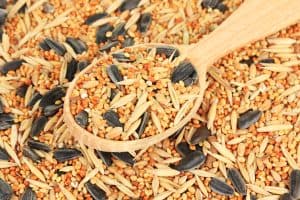
1. Pellets: High-quality, commercially available pellets specifically designed for cockatiels should make up the majority of their diet. These pellets are formulated to provide a balanced mix of essential nutrients.
2. Seeds: In moderation, seeds can be part of a cockatiel’s diet. Opt for a mix that includes sunflower seeds, safflower seeds, millet, and canary seeds. However, seeds should not be the primary source of nutrition, as they can be high in fat and lack essential nutrients.
3. Vegetables: Fresh, washed vegetables are an essential part of a cockatiel’s diet. Safe options for cockatiels include leafy greens (kale, spinach, Swiss chard, and dandelion greens), broccoli, carrots, bell peppers, zucchini, peas, and green beans.
4. Fruits: Fresh fruits can be a healthy treat for your cockatiel. Safe fruits include apples, pears, bananas, oranges, clementines, tangerines, mandarin oranges, berries (strawberries, blueberries, raspberries), kiwi, and melon. Be sure to remove any seeds and pits, as they can be harmful to your bird.
5. Grains: Cooked whole grains such as brown rice, quinoa, barley, and whole wheat pasta can be fed to cockatiels in moderation.
6. Legumes: Cooked beans and lentils can provide a source of protein for your cockatiel. However, they should be fed in small amounts and not as a primary source of nutrition.
7. Sprouted seeds: Sprouting seeds increases their nutritional value and can be a healthy addition to your cockatiel’s diet.
8. Cooked eggs: Occasionally, you can provide cooked eggs (boiled or scrambled) as a source of protein for your cockatiel. Make sure the eggs are fully cooked and do not contain any added salt or seasoning.
9. Herbs: Fresh herbs such as basil, cilantro, and parsley can be fed to cockatiels in small amounts.
Always introduce new foods gradually and monitor your cockatiel’s reaction. If you notice any adverse reactions or digestive issues, discontinue feeding that food item and consult your veterinarian or avian specialist for advice. Avoid feeding your cockatiel foods that are high in salt, sugar, or fat, as well as any known toxic foods such as avocado, chocolate, caffeine, and alcohol.
What do cockatiels eat in the wild?
In the wild, cockatiels eat a diet that consists mostly of seeds, grasses, and insects. They will also occasionally eat fruits and vegetables. You can mimic this diet for your pet cockatiel by feeding them a diet of pellets, fresh vegetables, and occasional fruits.
Take away: Can cockatiels eat oranges?
Oranges are safe for cockatiels to eat in moderation. The fruit is a good source of vitamin C and fiber, and can also help keep your bird’s plumage looking healthy and shiny. Cockatiels can eat oranges, however, oranges are high in sugar, so they should only be given as an occasional treat. If you do give your cockatiel oranges, be sure to wash the fruit thoroughly and remove any pesticide residue. Overall, oranges can be a healthy part of your cockatiel’s diet, but it is important to feed them in moderation.
